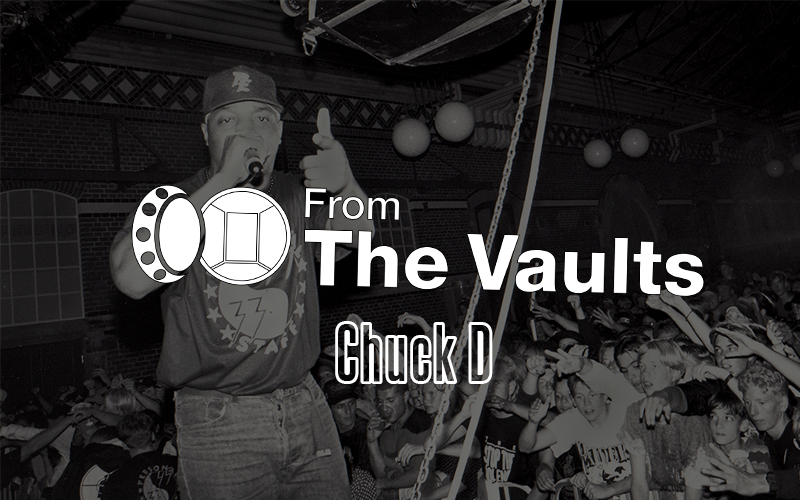From the Vaults E12: Public Enemy's Chuck D
Foto: Jonn Leffmann [CC BY 3.0 (http://creativecommons.org/licenses/by/3.0)], via Wikimedia Commons
By the time Public Enemy formed in Long Island in 1986, hip-hop had made its way into the mainstream. It was the year RUN DMC teamed up with Aerosmith (revitalizing the latter’s career, we might add) and the year the Beastie Boys released Licensed to Ill. Public Enemy had mainstream hits and commercial success as well, though they never once courted it. Their music was noisy, confrontational, political, and unapologetically black. It was hip-hop as no one had heard it before.
“Black art and expression is attacked from all sides anyway,” he summarizes, saying that hip-hop media should “build and not destroy.”
Chuck D, born Carleton Ridenhour, had an intense and commanding rhyme style. Along with the rest of the crew – Flavor Flav, Professor Griff, Terminator X, the S1Ws, producers The Bomb Squad – he created a group that combined militant imagery, political awareness and righteous anger. They were true originals, a cacophonic funk machine, providing mad rhymes for mad times.
CFMU’s Claire Hynes had a chance to talk to Chuck D after the release of 1994’s Muse Sick-n-Hour Mess Age, their fifth album. Critics were not as enamoured of it as they were previous records, but here Chuck is clearly unconcerned with commercial or critical success. With casual candour, he discusses the popularity of gangsta rap, the role of the music industry, and the past, present and future of hip-hop. When asked about the role of hip-hop critics, his first statement is that they shouldn’t call themselves critics. “Black art and expression is attacked from all sides anyway,” he summarizes, saying that hip-hop media should “build and not destroy.”
Love hip hop? Check out CFMU's Live n Direct Show, playing every Saturday night from 9-10:30pm, for your newest industry and area exclusives, live interviews and trending hip-hop news.
CFMU's Mook and John P give us a glimpse into the process of creating beats and rhymes, culminating in a live in-studio session with Reid Roses and Elley Jeeze.
